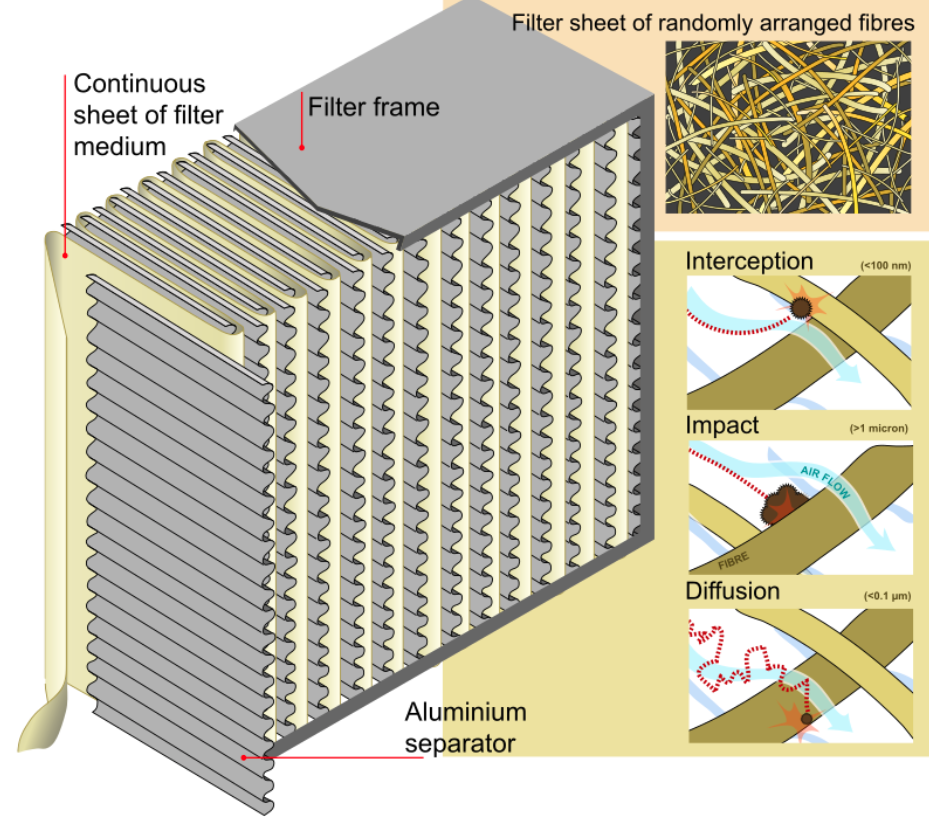For people who suffer from asthma or respiratory allergies in Mt. Juliet, HEPA filters are perhaps the most powerful source of relief for those symptoms. If you’re considering investing in a HEPA filter to improve your indoor air quality, you need to know more about how they work. Read on to learn more.
What is a HEPA filter?
HEPA filters, usually defined as either “high-efficiency particulate air” or “high-energy particulate arresting” filters, are filters that are tested and proven to trap a whopping 99.7% of particulates 0.3 microns or larger. Many HEPA filters can also trap particles smaller than 0.3 microns, but those particles are not taken into account in terms of the threshold to be considered a HEPA filter.
While there are several differences between HEPA air filters from different manufacturers, HEPA filters in general use a complex web of filters in order to collect different types of particles. For larger particles, these filters use inertial impaction or sieving; they either trap particles on impact with the fibers or while attempting to travel through the fibers. When medium-sized particles pass through the filter, they are grabbed by the fibers in a process called interception. Finally, smaller particles dissipate as they travel through the fibers.
It’s important to note that in addition to true HEPA filters, there are many filters on the market with names such as “HEPA-like,” “HEPA type” and so on. Those terms are not regulated or strictly defined in any way. There are no requirements for companies selling these types of air filters to demonstrate their performance.
Finding the Right Indoor Air Quality Products for Your Home
While HEPA filters and other air quality products are especially essential for anyone in your home who has asthma or respiratory allergies, they have value for anyone. Improving the quality of your air in your home will have a significant effect on the overall quality of life for everyone in your home, even pets. To learn more about HEPA filters, check out Bentley’s Air Conditioning’s indoor air quality solutions or call (615) 754-2665.

